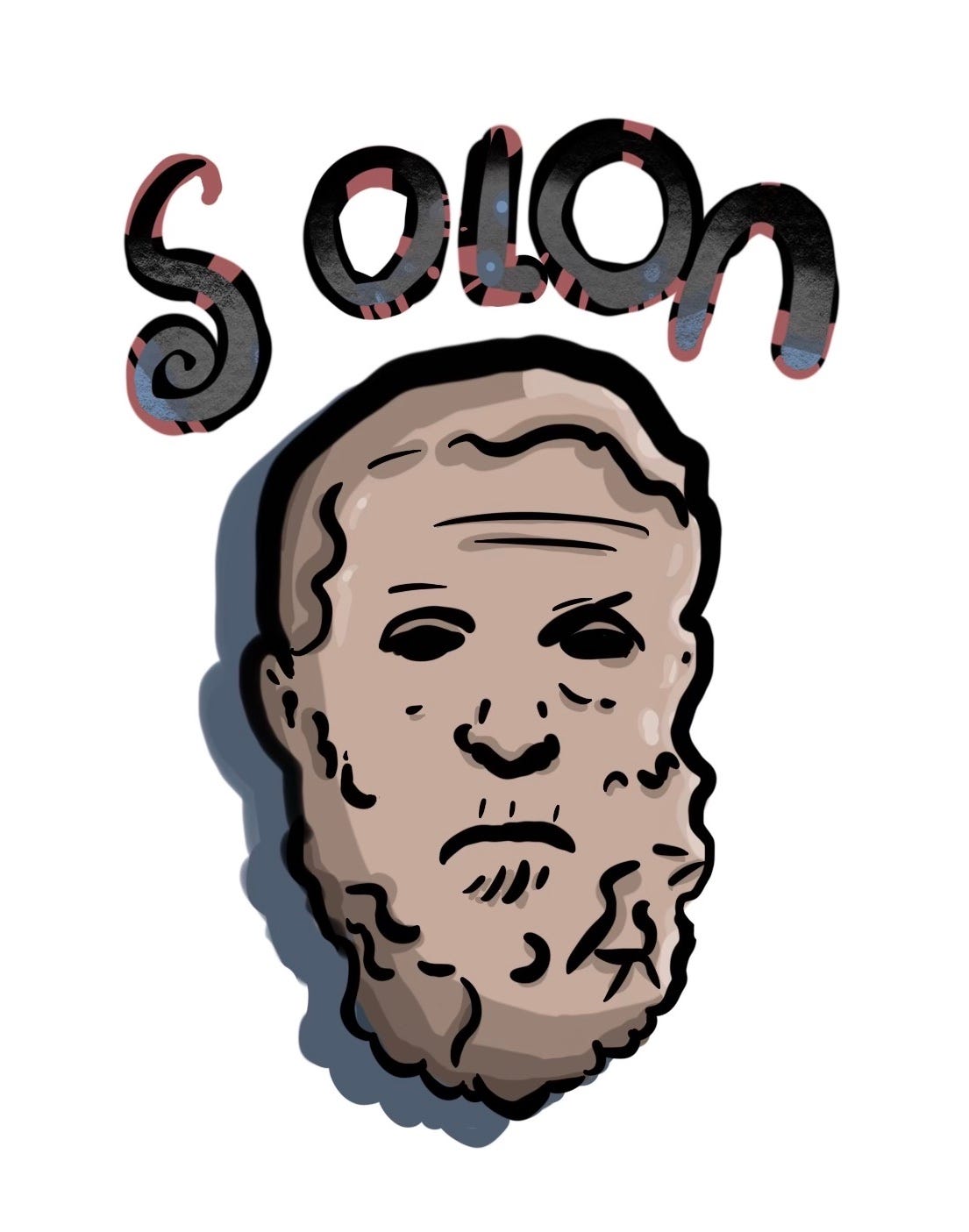1. Solon, eminence number two in Lives of the Eminent Philosophers, was in fact a politician.
1.1. My Oxford University Press edition of the Lives shows here a 16th century fresco from a church in present-day Romania. It is labeled "Philosophers of the ancient world." There are three figures: Plato, Pythagoras, and Solon.
1.1.1. This is a very strange list.
1.1.1.1. It's a Renaissance version of that old Sesame Street segment, "One of these things is not like the other."
1.1.1.1.1. Solon is the frog.
1.2. Some of Solon's "excellent" laws are listed. Here's a good one: "if someone knocks out the eye of a man who only has one, he should have both his eyes knocked out."
1.2.1. So, two eyes for an eye, if the conditions are right.
1.2.2. I shudder to think of why such specific legislation was deemed essential and good.
1.3. Solon was also known for laws he didn't pass: "When asked why he [Solon] had not framed a law against parricide, he said, 'In the hope that it will not happen.'"
2. Solon gave advice. Maybe that's why he was classified as a philosopher.
2.1. Academic philosophers often complain about being asked, just when they’re at their most vulnerable—when they are strapped helplessly to an airplane seat or trapped in a grocery-store line, at that moment when there is no hope of escape we are asked, "What's your philosophy?"
2.1.1. How dare you.
Keep reading with a 7-day free trial
Subscribe to Mostly Aesthetics to keep reading this post and get 7 days of free access to the full post archives.




